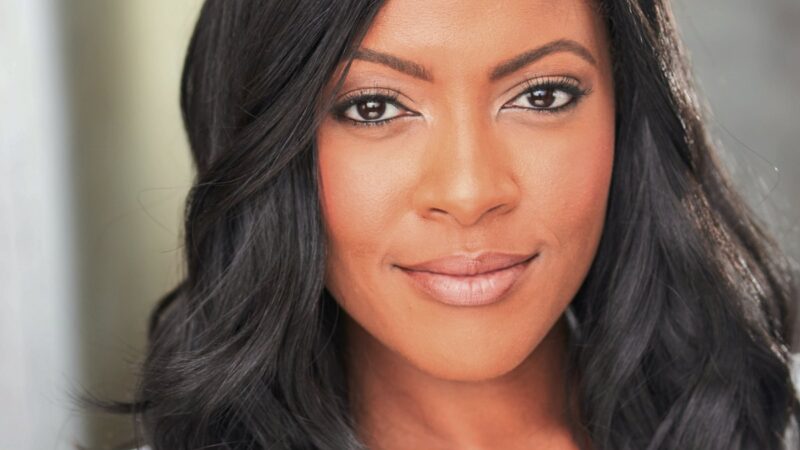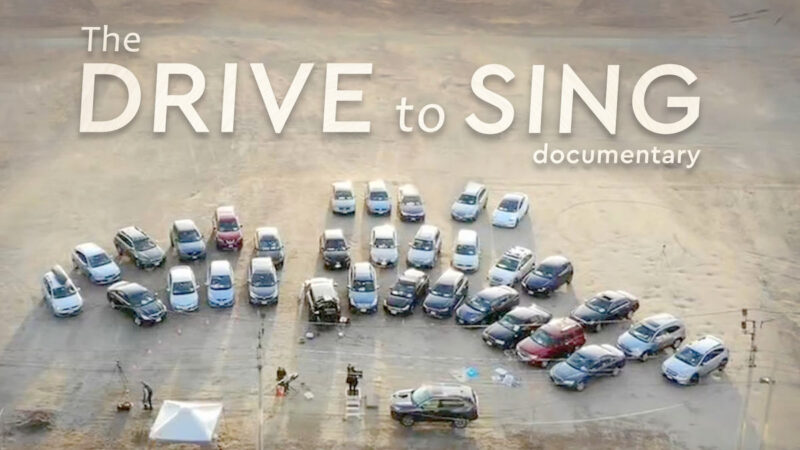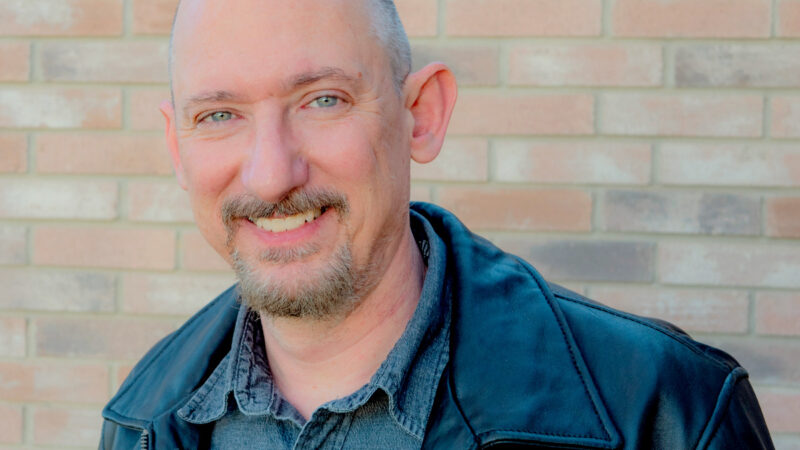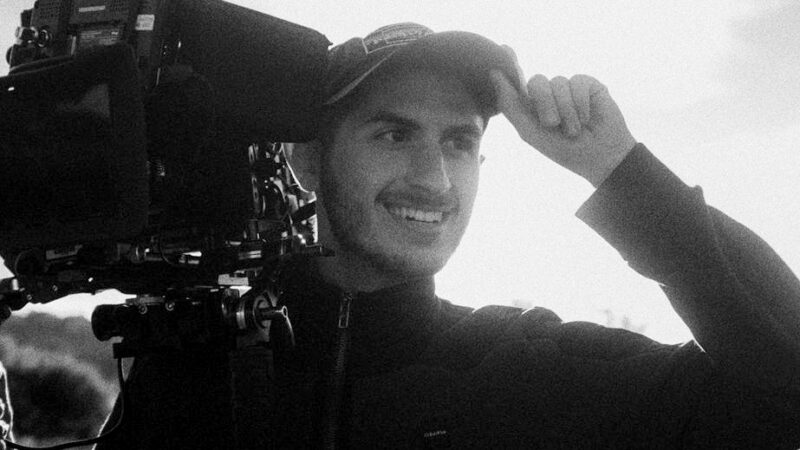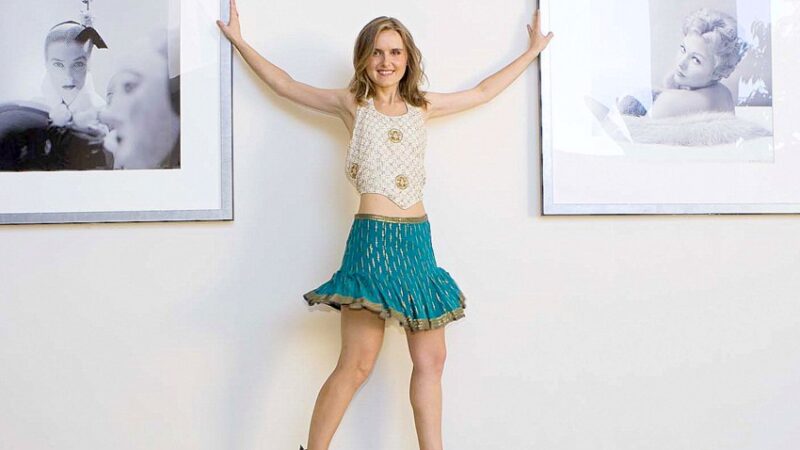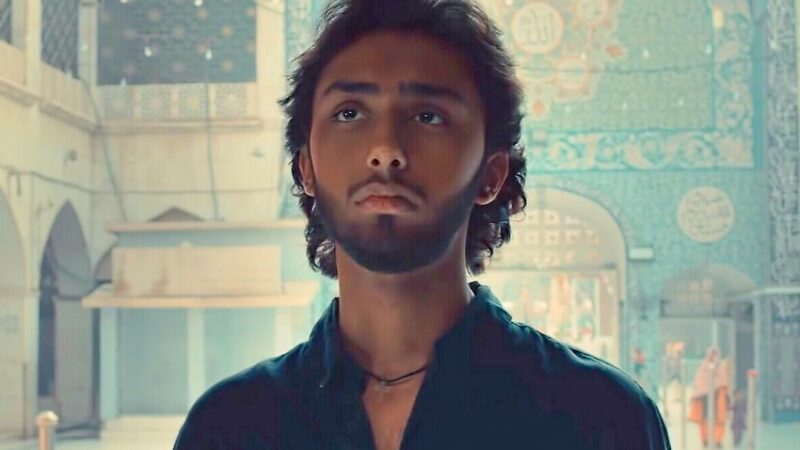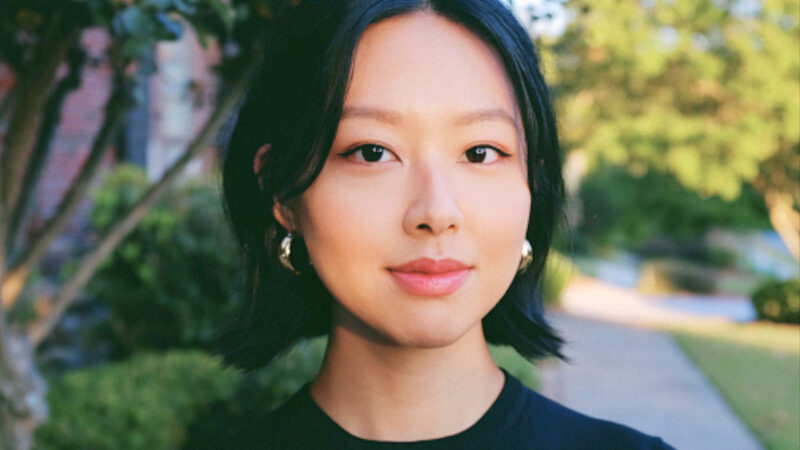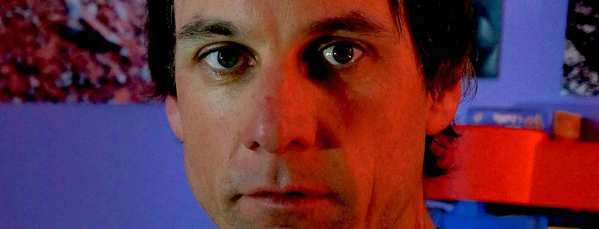
Born in South Africa, and chased adventure most of my life, always looking for a thrill to keep me appreciating living. I started lifesaving at 14 and by 16 years old I was out of the house and on my own. A film changed my life and from that moment on it took a drastic turn. I worked voluntarily for many years until I was able to find my calling. I have followed all my dreams very strictly from lifesaving, to scuba diving, youth concealing, running a horse stud farm, getting a private pilots license, mountain climbing, sailing, working as a volunteer fireman, working with the mountain and sea rescue and making movies. Since then I have been chasing the rush of changing lives, making a difference and doing what is best for the greater good the way a movie did for me.
How would you describe your work as a director
Deep, dark and mysterious… Much like me!
How did you get into directing
I worked for free in the film industry for many years until I found my niche, once I knew what type of films I wanted to make I then started writing and directing my own short films, until gaining enough experience to move to feature films. I have made more mistakes than not but those mistakes have made me more experienced. I am a slow learner and should be far more advanced in my career but I keep looking, keep pushing, keep living!
 How do you choose a project to direct
How do you choose a project to direct
Most of the time they choose me. I look for deep morals. I look for subtext, clever plot twists, metaphors, subplots, symbolisms, character driven story lines and high production value. I believe we as film makers have an opportunity to capture a wide variety of an audience at one single time. Our overall morals should be uplifting and inspiring to the world even if we have to take them through a dark realm for them to see the light. If a film has no values, no morals, none of the important elements that make it entertaining, it if doesn’t benefit the universe in some way, then I don’t want to waist my time making it. If God himself were to watch my movie, I would want him to be proud.
Briefly describe in a few words wrong impressions actors, writers,and directors have about directing
As a director I am not sure what impression people have about me other than from a personal level. I have always known risk, I have never been a “what if” kind of guy, when I want to do something I just do it. I stumbled into a country that play everything by the book, safety first and all that. I completely understand why but there was a huge conflict of interests because of my “no fear” attitude. If we had to make independent films by the book we would never get them made. Risk is a huge part of making films in every aspect of the game! It’s life in a nutshell, without struggle, there is no progress. Nobody has to die but we can’t sit around talking about making movies, we need to get out there, take some risks and make them, especially the one’s that can benefit humankind, those are the films that must be made!
Writers and directors are eccentric individuals and sometimes goofy, crazy and fun. Sometimes people see this as unprofessional and weak, we are not weak, modest maybe but not weak, we just understand the value of the people that work with us. Independent film Directors entertain appreciation for the smallest things that people do for us and our vision. We are by no means the person that makes the film work, it’s the cast and the crew and hundreds of others that run around to make our dream comes true. Those are the real heroes!
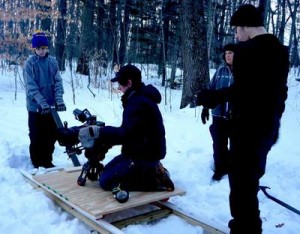 Do you take courses to increase your craft
Do you take courses to increase your craft
Sometimes but mainly I research a lot, I hop on the forums and learn from other peoples mistakes. I also watch a lot of films, not from an entertainment point of view but more about specifics. For instance why certain camera moves were used, the angle of movement and why, framing, music choice, sets, lighting and cast choice, timing, pace, dialogue and delivery. I listen to all the commentaries that I can get my hands on, some of them are very informative. I look for the subtext, the deeper meaning, most of the time I don’t think the audience pick it up but I do believe the human psychic picks it up which is why certain films we enjoy more than others, sometimes we don’t know why, we just do! The subconscious mind is a powerful thing.
What books do you read
Those with only pictures in them. If I have time to read then I have time to write and I would much rather write, that way I am creating something new and not reading something that has already been created.
Why will you choose an actor, writer or producer. What do you look for
Well when I choose actors, I look for something that relates to the character, it’s all in the eyes, I must feel something, they must attract me, draw me in, cause if they don’t draw me in or attract me than they are not going to do anything for the audience. I look for striking, unique individuals and sometimes will adapt the script around that character, if I don’t fall in love with them, then nor will the audience! For example all the characters in The Parricidal Effect had striking unique features, they glowed, they had a certain personality about them and as for my lead Ethan Kelly, there was something deep and mysterious about him. I loved that. The audience saw it and loved him too. It makes it so much easier for the audience to connect and identify with. Think of it like this: The audience are the puppets, the film is the puppet master, the actors are the strings!
 When you are offered a project, what thing do you put in place to do a good job
When you are offered a project, what thing do you put in place to do a good job
A good script is key, once you have a story you are proud of, it makes it easier to develop a schedule, because it all makes sense. If you have a story you not happy with, things don’t line up, it feels wrong, out of place, that instinct to want to stop everything and develop the story more is a nagging itch. A film maker has to listen to his instincts, trust yourself. Then it’s about the right cast, the right crew and the right attitudes. It’s the dynamics within the group that make a good film, you don’t want to be stuck with someone you don’t like working with, that’s a living hell and the film will feel it, the audience will feel it in the film so it’s important to get rid of that early in the game. I then make sure that I have justified the excellence in the design of the story, the talent involved, the art and energy. If I have not justified the efforts involved then I have failed, and by justifying the efforts of other people involved, it means I need to be on top form, being the best we can be at telling the story the best way it can and should be told. Those kind of responsibilities keep you on your toes. The minute you add someone else’s name to a movie, you are obligated to make them look good, make them proud! It’s your job as a director.
Briefly explain your latest work
The Parricidal Effect is the story of an amnesiac teenager who undergoes hypnosis to reveal the truth behind the murder of his parents of which he has been accused of. The story dives into the mind of a 16 year old boy who is being analyzed by a psychiatrist and sends the audience on a roller coaster ride of both his imagination and memory. The truth is something that neither he nor anyone else is ready for!
What thing/situation helps you during production
I guess the most important technical thing would be storyboards, they are vital to any scene, basically it’s about directing the film on paper before you get to direct the film with a camera. As distracted as I may be after every days shoot, I have to constantly tell myself, “Don’t be lazy, draw your storyboards” I do it the night before each scene so that it’s fresh in my mind the next day. It’s the difference between having a scene that works to having a scene that works well! It allows you to identify where the camera is going so you don’t have to worry about it on the day. When time is a number cruncher, you don’t want to have to be running around looking for things to fill the frame with that you could have overseen with a simple sketch!
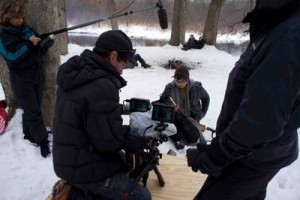 Explain a creative choice you took on set on a recent production
Explain a creative choice you took on set on a recent production
The script of The parricidal Effect was initially meant to be filmed in a psychiatric hospital, I could not find one that would grant us access. During the course of the search I came across a film that had been made in a prison, I then thought that a prison would make for a healthy substitute. I approached the prison, they said yes and I altered the script. I believe it is a better film having used the prison to what it would have looked had we used the hospital. Also I choose to film in a state that had lots of snow, this was a production value choice. Even though the film was all about genre, I still wanted to add other elements to it other than it being a character driven story line. I like to take an audience where the majority of them are not willing to go, unless they can go there and keep dry in the comforts of their own home. Snow was it. it makes filming very difficult but well worth it. Snow is also a big part in my next film so I guess that’s probably going to be my trademark. It makes the film look expensive and takes it to another dimension. It also makes for a challenge and I am all for challenges.
How do you advise directors to find projects
Look for what sells, speak to distributors and find out what films they want you to make, research the market and try find a hook, a story with a following, a book maybe or even better, a comic. Don’t just go out there and make a film you want to make, those passion projects can come later once you have developed a name. For now, you need to focus on genre because that’s what sells. i wish I had been told this ten years ago, I would have saved me a lot of trouble. Most times a distributor is looking for a name attachment but there are exceptions if the genre is right. I went for the thriller genre because it was hot at the time but for me it’s not about blood and guts and gore. We are obligated I believe to provide a moral standard as a film maker, we don’t have to preach, but it is a perfect avenue to keep society in check. The minute we allow our movies to loose moral standards, then we have lost the battle between good and evil.
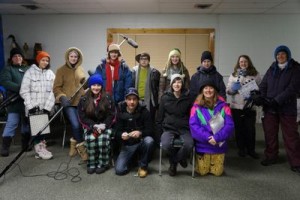 How can filmmakers finance projects
How can filmmakers finance projects
This is a huge discussion and not something I can answer in one line. It’s hard, I won’t lie… It’s hard but not impossible, just make a good movie, it will be easier to sell! For a first time director to get finance for his/her film is rare but not impossible, don’t wait though, before you can wipe the sleep out of your eyes 10 years would have passed and you’re still talking about making the same film. Just pick up a camera and make the best film you can make for as cheap as you can make it… beg and borrow if you have to, if you are passionate enough, you will find a way. As you grow, so will your budgets. Eventually you will have investors coming to you. That’s just the natural order of the business!
What do you want from an actor in production
His or her best. I like them to identify with the character, live the character, feel his/her pain, make up the exposition if it helps, live the fantasy, use their imagination on where this character comes from. I love for them to play during breaks, so that they can allow their subconscious mind to hone in on the character, release some endorphins. To think too much about it can sometimes have the opposite effect. On The Parricidal Effect, we spent more time goofing around then actually filming but that’s just because we were dealing with kids and me being a kid myself, I have the attention span of a goldfish! but when it comes time to focus… Then we really do focus!
How do you prefer to work with a producer during a production
I have always been the producer and I like working with me cause i’m a fun cool guy 🙂 If they can be as fun as I am, I am open to anyone producing with me! I have 4 rules for anyone working with me. There is only one director, don’t shout at my actors, make sure everyone is fed all of the time, and lastly, I want a happy set! That’s not a lot to ask!
What do you think a director can do to get into the film industry
Pick up a camera and make a film, then make another one, then another one after that and then just keep making films, no matter how bad they are, you can only learn with experience, papers mean nothing if you don’t have the talent, and talent is not a naturally born gift, it is something that is acquired so acquire it!
Who is your favorite director
Tony Scott used to be, unfortunately he is no longer with us so for now I’m gonna go with Edward Zwick.
Why
He is very story oriented and his films always have a strong moral message that make you leave the cinema feeling energized to pull off the old you and start a new one, not to mention they are exceptionally well made. He also uses psychology to manipulate his actors into reaching certain emotions that he wants them to reach, I respect that. It shows passion, dedication, and knowing the game. He is a genius and doesn’t make enough movies in my opinion.
What advice would you give to directors around the world
Stop relying on your actors to carry the scene, it is your job to help them, you are the director so direct them. I have seen many directors making the mistake where they arrive on set and because they have done all their homework in making the scene look good, knowing where and when to move the camera, they then expect the actor to just perfect the scene and pull it off by following a script… they’re actors, not Psychics. Stop concentration on the technical elements so much, you have people on set to do that, if you don’t, then do it without the actors knowing because it breaks their attention. Make sure you give them the attention they want. It’s just a part of who they are, don’t judge them for it, if they were not attention seekers, they wouldn’t be actors! But remember, the audience attention is directed toward the actors… so should yours!
Briefly write about your career
I joined the parks board when I was 17 and started hiring camera’s on my own accord making short wildlife films. When I had enough content I used that to get into the studios, I then worked for free for a number of years to gain experience and to find where my expertise would best be suited. I then shot a short film which I failed miserably with, so I went back into wildlife films to try figure out what I needed to do. I then went back to do another feature film 10 years later. This one was a lot better, now the third time lucky My feature film The Parricidal Effect has been sold to a sales agent which will be presented to international buyers at the upcoming film markets around the world. I am now busy pre producing my third feature film, A psychological thriller called “Cold to the Bone”
INTERVIEWS
more interviews

